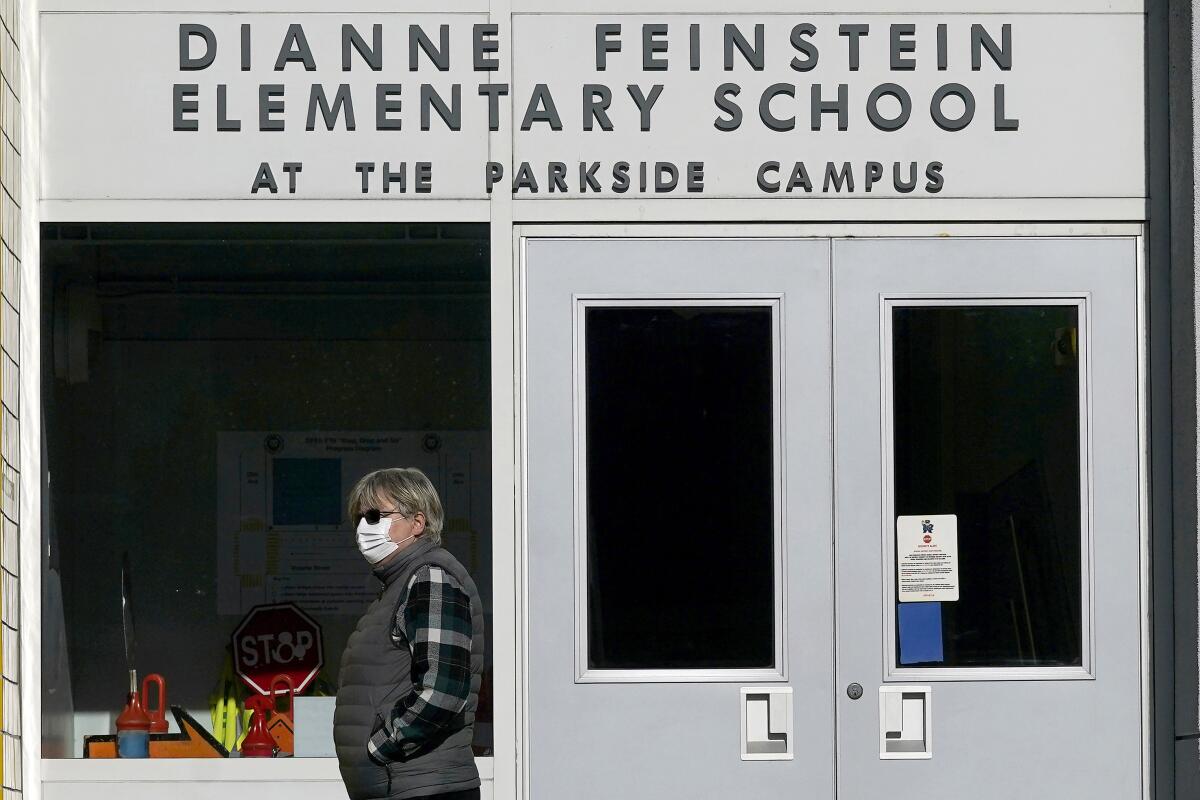Noncitizen parents will again be able to vote in S.F. school board elections after group drops legal fight

Noncitizen parents of school-age children will once again be able to vote in San Francisco’s school board elections after a conservative group that challenged the practice said it won’t take the fight to the state Supreme Court.
Noncitizen parents cast votes in four school board elections after San Francisco voters in 2016 approved Proposition N, which allowed them to vote in those races but not in state or federal contests. But in 2022, a conservative legal group dubbed the U.S. Justice Foundation challenged the law and sued the city.
A judge struck down the law in July 2022, siding with the group and ruling that only citizens may cast a vote. The ruling applied to both San Francisco and Oakland, which had also allowed noncitizens to vote in school board elections.
But that decision was overruled in August by the 1st District Court of Appeals, which found the proposition did not violate the California Constitution.
On Wednesday, the leader of the conservative nonprofit group said the organization won’t continue to fight the measure in court. Its next step would have been an appeal to the state Supreme Court.
“We think it is unlikely we can receive a fair review of our Superior Court victory by further using limited resources to another appeal in an overtly liberal California court of Appeals system,” James Lacy, founder of the U.S. Justice Foundation, said in a statement.
California legislators vote to ban laws that force landlords to evict tenants based on criminal histories. Such policies can disproportionately affect Black and Latino renters.
In August, the appeals court ruled that the state Constitution did not limit voting rights to citizens.
“Neither the plain language of the [California] Constitution nor its history prohibits legislation expanding the electorate to noncitizens,” the court ruled in rejecting the argument from the U.S. Justice Foundation.
When Proposition N was introduced, proponents argued that allowing noncitizen parents of schoolchildren to vote in school board elections could increase parental involvement and, as a result, improve educational achievement, according to court records.
The court ruled that it was particularly true for charter cities, like San Francisco, whose authorities of home rule “permits the voters of each charter city to determine whether it is good policy for their city or not,” to expand voting rights to noncitizens.
While most cities in California, known as general law cities, are governed and organized under state laws, charter cities, such as Los Angeles, San Francisco, San Jose and Sacramento, are governed and organized by local laws.
The Pulitzer Prize Board announced on Tuesday that it will be dropping its U.S. citizenship requirement for awards in books, drama and music beginning in 2025.
Lacy pointed to the state court’s Democratic judge appointments as the reason why his organization would not continue to fight the law in state court. But he said it would continue to challenge additional cities that took up similar measures in federal court.
“We will, however, sue again any other city in California that attempts to enact noncitizen voting, though most likely in the future in the federal court system, where we think we will not be met by such one-sided opposition at the appellate level,” Lacy said in the statement.
Allowing noncitizens to vote in local and school elections is not a new practice, but one that has caught the eye of conservative groups that have been critical of immigration policies.
Residents in Takoma Park, Hyattsville, Riverdale Park and Mount Rainier in Maryland allow citizens and noncitizens alike to vote in local elections.
In California, the Santa Ana City Council has discussed expanding the right to noncitizens as well.
“If Santa Ana follows through with implementing noncitizen voting in their school board elections, we will sue them,” Lacy said.
In 2019, the Los Angeles Unified Board of Education approved a measure to study allowing noncitizen parents to vote in school elections. It wasn’t immediately clear what the result of the study was. A spokesperson for LAUSD did not immediately respond to a request for comment on the study.
More to Read
Sign up for Essential California
The most important California stories and recommendations in your inbox every morning.
You may occasionally receive promotional content from the Los Angeles Times.












